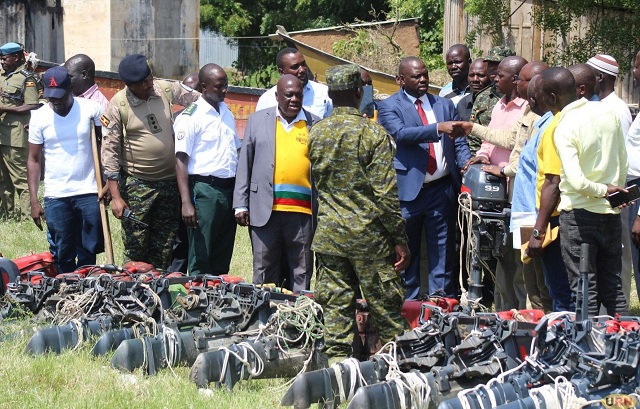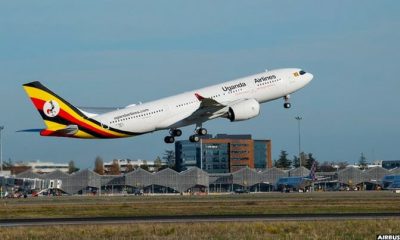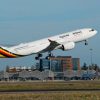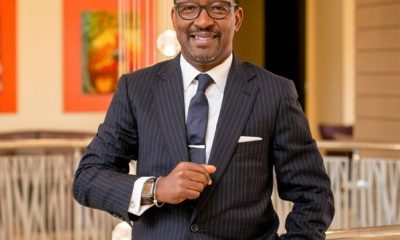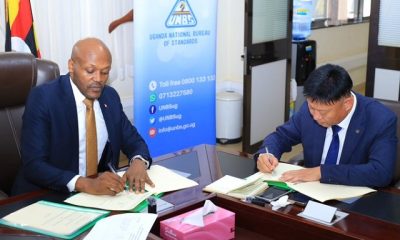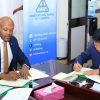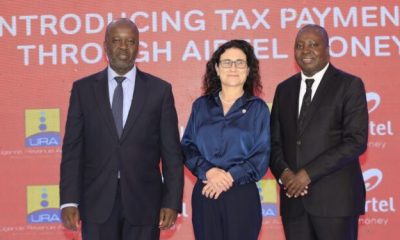Business
Uganda Returns Confiscated Fishing Gear to DRC in Bid to Ease Border Tensions on Lake Albert
In a significant move aimed at de-escalating long-standing cross-border tensions, the Ugandan government has handed over 23 confiscated boat engines and 19 fishing boats to officials from the Democratic Republic of Congo (DRC). The equipment, seized from Congolese fishermen operating illegally in Ugandan waters, was returned at no cost following diplomatic negotiations between the two nations.
The handover ceremony, held at Butiaba landing site in Buliisa district, saw a delegation of Congolese officials led by Kabaseke Kyabakibi receive the fishing gear. The boats and engines had been impounded by Uganda’s Fisheries Protection Unit (FPU) between July 2024 and May 2025, primarily in Buliisa and Pakwach districts.
Lt. George Ntungire, FPU Sector Commander for Buliisa, explained that the confiscations were a result of Congolese fishermen violating Uganda’s Fisheries Act by engaging in illegal fishing activities within Ugandan territory. He revealed that since July 2024, 40 Congolese fishermen had been arrested for such infractions, all of whom were cautioned and repatriated.
Major Joseph Labu Cherop, representing the FPU Commandant, emphasised that the decision to return the gear was a gesture of goodwill stemming from thorough negotiations and a mutual bilateral understanding. However, he issued a stern warning to Congolese fishermen to respect the border and cease illegal incursions into Ugandan waters.
The handover underscores a broader effort to address the persistent insecurity on Lake Albert, which has for years been a flashpoint for disputes, violence, and even fatalities. Sylvester Tumukurate, the Buliisa Deputy Resident Commissioner, called for quarterly joint cross-border meetings to tackle these conflicts proactively. He also urged the Congolese government police and army to conduct operations on the lake in uniform to avoid confusion with civilians and militiamen.
Allan Atugonza, Member of Parliament for Buliisa County, who presided over the ceremony, highlighted the severe hardships faced by Ugandan fishermen at the hands of Congolese militiamen and government forces. He stressed the urgent need for a joint legal fishing regulatory framework to foster harmony.
Congolese delegation head Kabaseke Kyabakibi expressed gratitude for Uganda’s decision to return the equipment, calling for increased cooperation and harmony between fishermen from both countries. However, Ibrahim Musa Asaba, LCIII Chairperson for Butiaba town Council, echoed concerns about Ugandan fishermen being arrested and detained by Congolese forces under unclear circumstances.
The history of Lake Albert is marred by violence. Since 2018, attacks by suspected Congolese militiamen on Ugandan fishermen have been frequent, resulting in loss of life, gear, and boats. A recent incident last month near Senjojo landing site saw armed men in Congolese military uniforms attempting to seize boats from Ugandan fishermen, leading to a gunfight that left two assailants dead. Previous incidents include the fatal shooting of two suspected Congolese militiamen by UPDF soldiers in April 2020 and the abduction of 16 Ugandan fishermen in March 2021 who were later released after paying ransom.
Leaders in Uganda’s Bunyoro sub-region have consistently blamed the Ugandan government for the ongoing insecurity, citing its failure to demarcate the Lake Albert boundary. They argue that the absence of a clear border has led to frequent disputes and arrests of fishermen from both sides. There is a growing consensus among leaders that both governments must expedite the boundary demarcation process to end the longstanding friction and safeguard the livelihoods of their respective fishing communities.
The handover represents a crucial step towards fostering a more peaceful and cooperative environment on Lake Albert, though the path to a lasting solution will undoubtedly require continued dialogue and concrete action on border demarcation.
Comments



